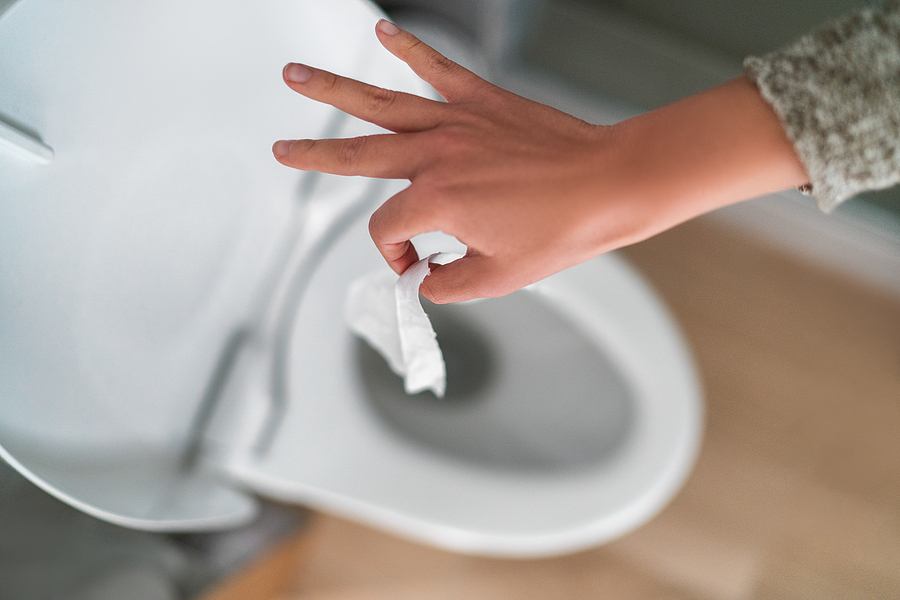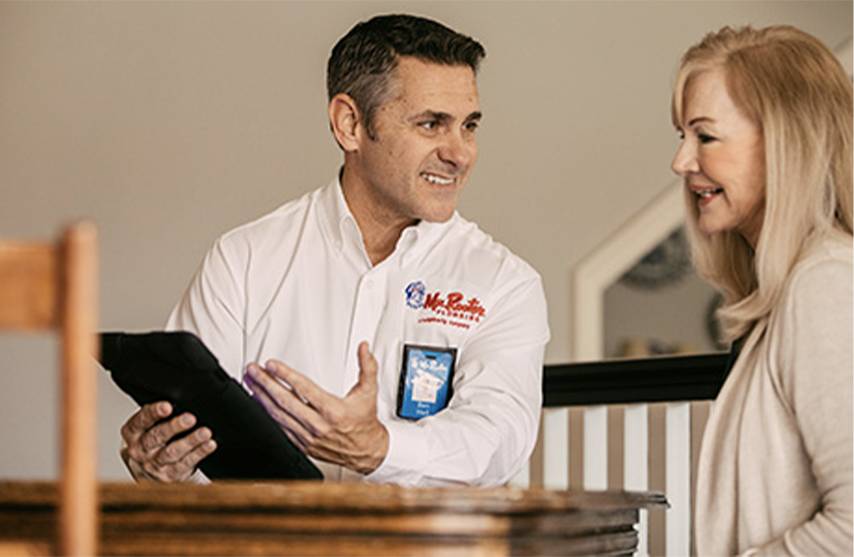
Flushable wipes appeal to many homeowners, as they seem like a convenient solution to bathroom hygiene. It’s no surprise that they’ve become a staple in many households. You probably use them regularly without giving much thought to their impact on your plumbing system.
Here at Mr. Rooter Plumbing, we’ve been called numerous times to clear blocked toilets, and we’ve discovered that flushable wipes are one of the main culprits behind these issues. Having been in the plumbing industry for over 50 years, we know what to flush down the toilet and what to avoid. In this article, you’ll learn the truth about ‘flushable’ wipes and why they don’t belong in your drains. Mr. Rooter Plumbing is the go-to plumbing service when you’re in need of professional and affordable drain cleaning.
So, are flushable wipes really flushable? The short answer is no. These wipes should never be flushed down the toilet, no matter what the label says. Marketed as safe-for-plumbing flushable wipes, professional plumbers say otherwise. We get it—they might offer a convenient option for bathroom hygiene, but they can cause nasty drain clogs.
To help you understand why flushable wipes don’t belong in your drains, let’s compare them to regular toilet paper. Toilet paper is primarily made from wood pulp, while flushable wipes often contain synthetic materials or a blend of wood pulp and synthetic fibers. When toilet paper hits water, it disintegrates into pieces, making it suitable for flushing. Flushable wipes, despite the name, often do not break down as efficiently and can contribute to clogs.
Apart from causing drain clogs, flushable wipes contribute to fatbergs (a massive clump of solid waste that builds up in sewer systems). A fatberg is formed from a combination of flushed non-biodegradable items, like wet wipes, and fat, oil, and grease that have been poured down drains. Flushable wipes create a sticky foundation for other materials like grease, oil, and hair to attach to. As more and more wipes and other substances accumulate, they form a hard, concrete-like mass known as a fatberg.
The most effective way to dispose of flushable wipes is to place them in the trash can. Tossing them in the toilet may seem like the easiest option, but it will certainly come back to haunt you in the form of a clogged toilet. Proper disposal prevents clogs, saves you money, and protects the environment.

If you’ve been flushing flushable wipes and other inappropriate items down your toilet and are worried you might have a clog, watch out for the following signs and schedule toilet repair service as soon as you can:
If left unaddressed, a clogged toilet could put a damper on your day, especially if you only have one bathroom in your home. Call a trusted plumbing repair service for a solution if you’re unable to clear the clog using DIY techniques such as plunging the drain.
Mr. Rooter Plumbing is a reputable plumbing company well known for providing top-notch toilet plumbing services. We have over 50 years of experience providing reliable toilet installation and repair in the areas we serve. Whether you’re installing a new bathroom in your home or you’ve noticed signs of a clogged toilet, we’re the plumbers to call for help.